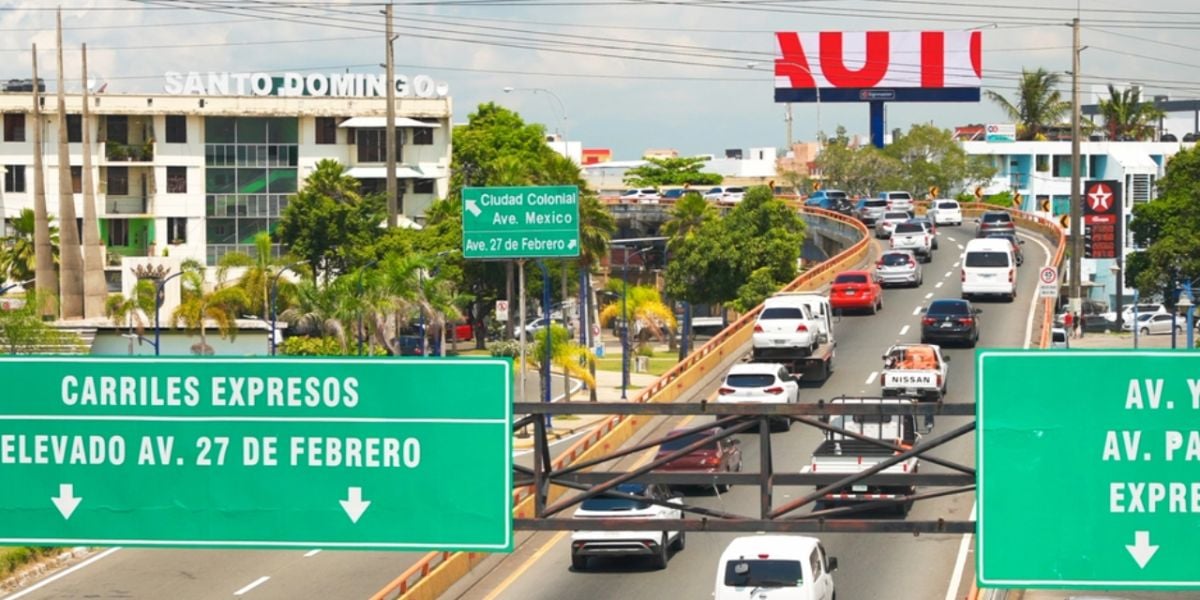
What is driving like in the Dominican Republic and how do you obtain a driving license? Find out all about it in this article.
Driving in the Dominican Republic is not like driving anywhere else. The Dominican Republic holds the fourth position among Caribbean and Latin American countries, where a significant number of accidents unfortunately result in numerous fatalities, but that does not mean you should not drive there, as long as you take the necessary precautions.
Dominican driving
The first thing to bear in mind is that Dominicans, on the whole, are not necessarily good drivers. Many do not have a driver's license, and they are almost all self-taught. The key issues are:
- they usually only drive with one hand on the wheel, the other hand usually busy handling a cell phone or a bottle of beer;
- although there is a law against drunk driving, it is rarely enforced, and many drive after drinking;
- they drive fast and often too close to the car in front (tailgating);
- they take no notice of No Overtaking signs and often overtake on bends;
- many of the vehicles are old and poorly maintained;
- there are several motorcycles on the road which weave in and out of the traffic;
- use of mirrors and indicators is very rare;
- night driving is dangerous due to animals on the road, and many Dominicans drive with lights on full beam.
Therefore, you need to drive very defensively, use both wing mirrors to check for motorcycles coming up on the inside and the outside, and never assume to know what the car in front will do, so it is important to leave plenty of space between you. It is best to avoid driving at night and avoid driving on holidays when people are more likely to have been drinking, especially during Easter.
Dominican roads
There are different types of roads in the Dominican Republic. There are now many highways that have two lanes and are in excellent condition, and many have tolls on them. There are also single-lane roads that often have potholes, and in some cases, they crumble at the edges, especially after heavy rainfall. Finally, there are dirt tracks, often found in country areas, and some need a 4×4 to drive on them.
Dominican driving license
Your home country driving license is only valid for 30 days after you arrive in the Dominican Republic. This does not matter if it is an international license or one issued by your home country. However, there is a bit of a catch in that you cannot apply for a Dominican license until you have a cedula or identity card, which is only issued when you are a permanent resident or a citizen. Therefore, it is best to carry something to show you are in progress towards getting your residency. In practice, foreigners rarely have problems driving without a Dominican license, even though the law says differently.
Some countries allow you to convert your driver's license, including Canada, but not the United States or the United Kingdom. You need to go to your embassy in the Dominican Republic and obtain a certificate saying your license is legal, and then take the certificate along with copies of your residency card and your license to the local driving license center, where you then have to get a blood test and pass a vision test, and your new Dominican driving license will be issued.
Obtain a local driver's license in the Dominican Republic
To obtain a local driver's license without being able to convert your national one, you need to do the following:
- go to the local Driving Licence Centre;
- pass a vision test and take a blood test;
- listen to a talk on road education;
- take a written examination (there is a book which you can buy to assist with this);
- have your biometric data taken;
- receive your learner's license, which is then exchanged in 45 days for a full license.
Costs associated with a Dominican driver's license
The new prices for driver's licenses are as follows (according to official sources):
- learning card, from 34.03 USD to 49.35 USD;
- driver's license, from 32.33 USD to 42.54 USD;
- duplicate license due to loss, from 20.25 USD to 30.63 USD;
- renewal of expired license (depending on the year), from 34.03 USD to 187.17 USD.
Traffic police in the Dominican Republic
The traffic police are called AMET (Metropolitan Transport Authority) and wear green uniforms. They are on the lookout for anyone breaking the law, such as running a red light, not wearing a seat belt, or using a cell phone. Most fines are around USD 20. They can also impound your vehicle if your license is out of date or if you do not have vehicle taxation. You can pay fines online.
Important:
You won't be able to obtain a clean Police Report if you have outstanding traffic fines.
Please note that the following are illegal:
- a driver on a motorcycle not wearing a helmet (passengers do not have to wear helmets);
- a child under 12 years old being in the front seat of a car (there are no laws regarding child seats).
Vehicle tax in the Dominican Republic
The vehicle tax is known as a marbete and is an annual tax due at the end of each year. It is currently RD 3,000 for vehicles under five years old (USD 51.05) and half that price for those over five years old.
Vehicle inspection in the Dominican Republic
The Dominican Republic is introducing an annual vehicle inspection this year to ensure that vehicles are roadworthy. At the time of the inspection, the vehicle must also contain a fire extinguisher, first aid kit, and an emergency triangle.
Car insurance in the Dominican Republic
Third-party car insurance is compulsory and costs around USD 75 a year. There are many insurance companies. However, if you require fully comprehensive insurance, it is considerably more expensive, around USD 1,000 a year, and is only available for vehicles less than 3 years old. You will be given an insurance card, which should be kept in your person or in the glove compartment, as AMET will wish to see it if they stop you.
If you are in an accident in the Dominican Republic
If you are unlucky enough to be involved in a road accident, you must file a report with the authorities and contact the police. Many parts of the country now have the 911 emergency system for contact. However, if it is a small bump, then it is usually easier just to come to a swift agreement with the other party and arrange the necessary compensation without involving the police.
If you're involved in an accident that causes serious injury or death, Dominican law requires that the driver is taken into police custody until the circumstances of the accident have been investigated, even if the driver does not appear to be at fault. Therefore, you should call the police and wait for them to arrive at the scene of the accident. If you're detained as a result of a road accident, ask the police to contact your embassy for assistance.
Good to know:
If you witness an accident, however hard it may seem, the best advice is to keep driving. If it is an accident involving Dominicans, and a foreigner stops to watch, they may see it as an opportunity to have someone else foot the bill.
The Dominican Republic is well aware of its reputation for poor driving, hence it is trying to introduce a variety of measures to try and improve safety. They may take a while to take effect, but at least now, the infrastructure is being improved.
Useful links:
National Terrestrial Transit Institute (INTRANT)
Traffic police
Car insurance
We do our best to provide accurate and up to date information. However, if you have noticed any inaccuracies in this article, please let us know in the comments section below.








